Designing websites for startups
It can be easy to think the business landscape is all doom and gloom from time to time, but we know it takes more than negative headlines to dampen the nation’s entrepreneurial spirit.

UK Sees Over 1.5 Million New Startups Launched in Two Years
In the past two years alone, more than 1.5 million new startup companies were launched in the UK, according to government figures, which is much better news.
Not all of them will have a full-on, bells-and-whistles website, but chances are the vast majority will have some form of internet shop window.
After all, is there a better way to showcase your products and services, engage with customers, gather data and grow your startup into an established business?
The best startup websites are less costly than a bricks-and-mortar outlet, offer more control than ecommerce platforms and directly connect to the vast social media landscape.
Our team can design and build your dream website: one that evolves with your startup and consistently grabs the attention of your ideal audience.
Ready to find out what every startup website design should include? Let’s go!
Does a startup always need a website?
Yes, and we’re not just saying it because it’s what we do (very well). Every business, from the greenest startup to the most seasoned corporation, needs a web presence for several reasons.

For newer companies, it’s the ideal place to showcase their goods and services. Remember the global shift to online shopping during the pandemic? That hasn’t gone away.
Startup websites can tap into the booming appetite for ecommerce, but these internet shop windows also serve other purposes beyond selling.
The best startup websites provide a platform for a startup to tell their brand story to a national and international audience.
They are a point of communication for customers, a way to gather important data to personalise marketing, and a key tool in enhancing your reputation with search engines.
Get your website right and it will boost your credibility and growth. But if you’ve never operated startup websites before, where do you start?
Before creating startup websites...
The best startup websites incorporate several components before a single piece of code has been written, and it all begins with defining the purpose of your business.
Talk to others to get their impressions about your company, keep it simple and try to be precise about your startup’s purpose, and where you aim to be in five or 10 years’ time.
Next, you should ask yourself the following questions. The answers will ensure you have one of the best startup websites, that is appealing to visitors, effective and relevant:

Write a mission statement to define your startup’s purpose. Putting it in black and white will give you a consistent point of reference at every stage of the website design process.
Determining who is most likely to use or buy your products or services will help ensure your search engine optimisation (SEO) and content always remains relevant. Putting in the research time will pay dividends further down the road.
What need does your startup fulfil that other firms don’t? What is unique about your product or service? Defining that will help tailor your website design.
Complete newcomers to the entrepreneur landscape may be surprised at this question, but not every startup website is designed purely as a shop for a small business.
Many startup websites start out with that purpose, but often evolve into a smart way to increase sales or conversion rates, generate leads or build brand awareness among users.
What do the best startup websites include?
Once you’ve established your startup’s purpose and the website’s audience and goals, it’s time to think about building the site.
Although every business is different, there are several common elements that should be included in your startup website:

This should be the first page a visitor sees when they click on the primary URL listed in search engine results. The best startup website examples clearly state, front and centre, what the site is about.
It should be visually appealing (alongside every other page on your site) and feature multiple design elements aimed at engaging a site visitor’s interest, persuading them to linger and browse.
That could include relevant but eye-catching images or video about your product or service, customer testimonials or direct social media links.
Every great startup website has an ‘about us’ page. They’re an ideal way to tell visitors the story behind your business and can be the first step in forging a strong bond with your customers.
An about us page can also give a company that’s just starting out the opportunity to speak directly to users and visitors, potentially offering a change of tone from the rest of the website.
The third must-have page for every great startup website and, although it sounds obvious, it’s an easy step to miss in the rush to launch your business.
Make sure every possible means of getting in touch with you grabs attention too, from email addresses and phone numbers - with office hours if your startup keeps them - to contact forms.
Don’t forget to include social media links from the site too, so users can find your website!
The nature of your startup brand will determine which of these pages you need to create (obviously, startups providing both will need both pages).
For startups selling items and products, this page should be packed with data, from product descriptions and prices, as well as high-quality images supported by alt text. The product page will also need links to a secure payment method and frictionless checkout service.
For startups offering services, it’s imperative these pages have a clear call to action and ways for potential customers to contact you easily and quickly. Remember to create responsive images that offer insights into your branding and services, to provide lots of visual interest.
Every good startup website features a blog page where they regularly post written or video content to showcase the brand. There are several benefits to this, not least a chance to communicate directly with customers.
Blogging also enables a startup to answer frequently asked questions, provide insider tips and advice for visitors, launch new products or services, and provide updates on what’s happening to your company.
It’s a natural extension of the homepage features, and can help underscore your brand’s mission, as well as provide another place on your startup company website for a customer call to action.
Alongside content, data is king these days, which makes a privacy policy page a key pillar of every great company website.
It tells users how and why their personal data will be collected, used and protected, and makes sure they are completely aware of their rights.
A startup website’s policy page ensures visitors can make informed decisions about whether or not to provide their personal data.
An absolute must for every e commerce startup website, a T&Cs page lays out rules under which users agree to navigate your site.
You can even link it to a fixed banner stating your cookie or a brief overview of data use policies at the foot of each landing page. T&Cs for the best startup websites should include:
- Acceptance of terms
- Licence to use
- Acceptable use policy
- User accounts
- Site modification
- Support/maintenance
- Rights and ownership
- Disclaimers
- Account termination or modification
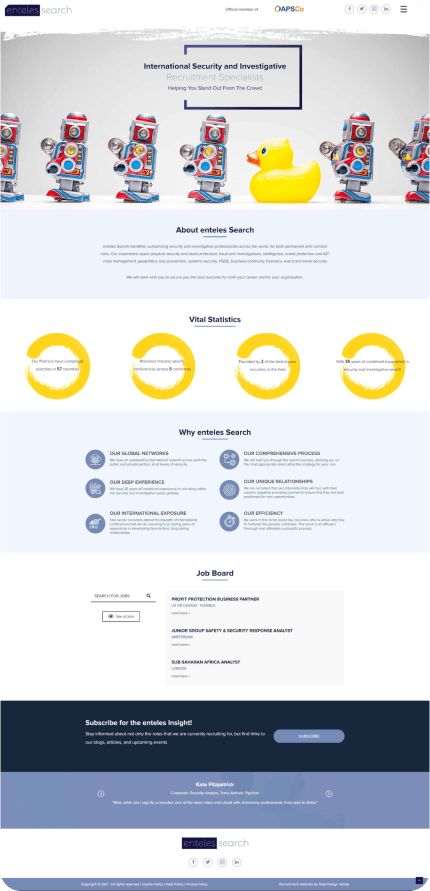
What about my startup website design?
The best startup websites grab an audience’s attention and hold it: from the landing page to the moment they click ‘buy now’.
The technology behind the web design you create should work hard and do more than make each page look amazing.
It should forge a strong relationship between your brand and your target audience, and do an excellent job of building trust and loyalty so they come back regularly (and bring their friends).
Great startup website design takes new customers and veteran visitors by the hand and shows them what to do. There are several ways your web design can do that at no extra cost.
A simple website layout
Nothing puts off visitors faster than a busy startup website that feels overwhelming and confusing. Stick to a minimalist design that grabs attention within a few seconds.
Think about the website’s colour
Your brand colours are the obvious choice when it comes to your startup website design, but use them in a smart way. Hints or accent shades can be impactful even with a minimalist vibe, while blocks of colour can help designate particular pages on your website.
Use top-quality images and video
Visuals dominate the internet and every great startup website features top-notch photos and video. Low-quality, wrongly-sized or outdated images will be a turn-off to visitors. It’s worth investing in website technology that will make sure your brand photos are pin-sharp and your videos load within a few seconds.
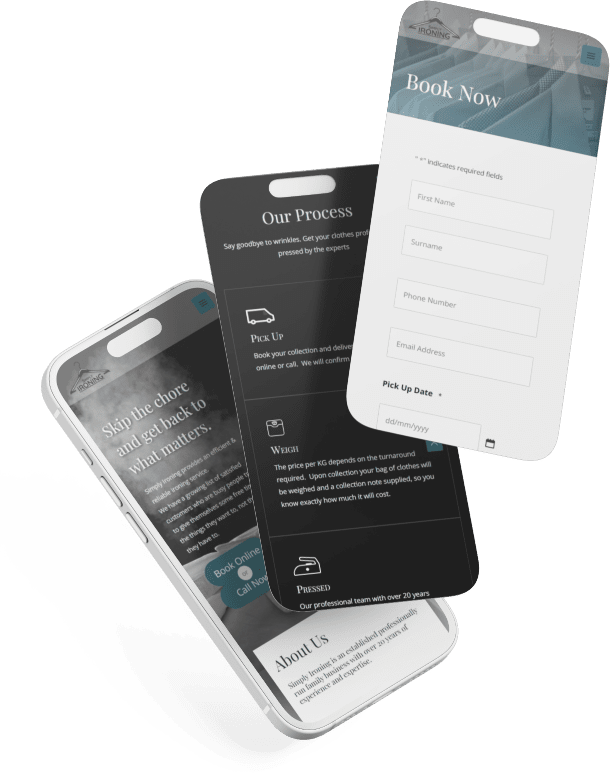
Make your website responsive
Growing numbers of people use their phones to scroll the web, so baking in responsive design is an absolute must for a brand or small businesses looking to create the best startup websites.
That means no matter what device visitors use to explore your site, every scrap of content is properly formatted and clearly visible.
Don’t mix and match
A great startup website has consistent branding design across every page. That means using the same visually appealing font and colour scheme throughout the site. It can be tempting to mix and match these elements, but the end result can look a little amateurish.
Make the most of the white space
It’s tempting to cram every page with content to engage visitors and customers but it’s worth stepping back and taking a moment. It’s all very well trying to tell your brand story, but can the text breathe and is it easy to read?
Will two great-quality images get your brand message across, rather than seven ‘meh’ ones? Decluttering your startup website will not only make it run more efficiently, it will also be more user-friendly.
Engage with headlines
Every small business wants to make their brand stand out from the crowd, and the headlines on the best startup websites can help them achieve that. Clear, concise headlines that include your website’s keywords are ideal for grabbing attention and engaging visitors.
Use that website call to action
A clear call to action or CTA should be placed as additional links on every page of your startup website. Make sure they are highly visible, and try to use persuasive language that will encourage visitors to take action, whether that’s filling in a form or making a purchase.
Test, test and test again
It’s always a thrill when a startup website goes live, but in the run-up to the big day, it is imperative that everything works, from the home page to the T&Cs.
Every call to action, all links, forms and overall site functionality must be thoroughly tested before the launch. Remember Ron DeSantis’ US Presidential campaign launch on Twitter Live? No startup wants that kind of technical chaos.
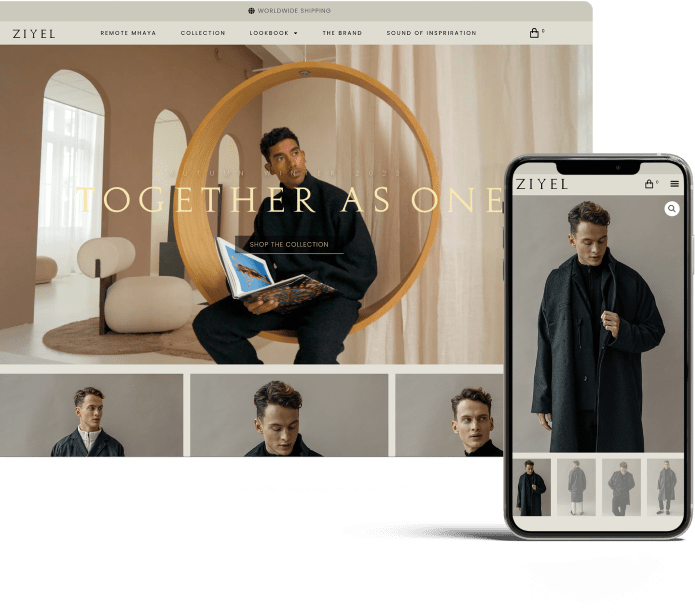
Content on your startup website
Once you’ve settled on a branding design for a great startup website, it’s time to take a closer look at the content, and how it can help your small business succeed and grow.
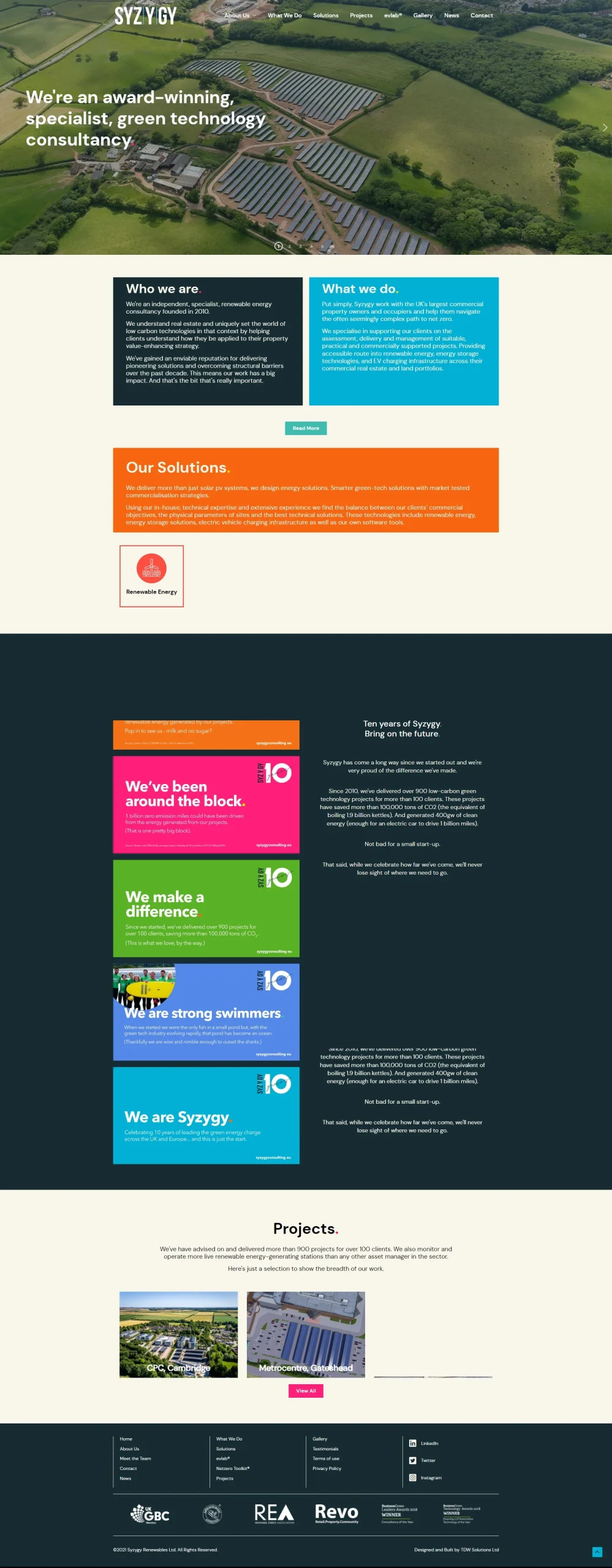
Keywords and SEO
Every startup website is different because every small business is different. You can take inspiration from other companies when it comes to the web design, but the content on the site should be unique to your brand story.
That means whatever you post to the startup website, from original written blogs to images and videos, should be highly relevant to your target audience.
How do you ensure your customers land on the home page of your website and not other startups?
Keywords!
Your website should be liberally sprinkled with them, not only so your visitors are engaged, but also to ensure search engines like Google sit up and pay attention.
Remember when we said do your research before creating your startup website? This is when that hard work pays off.
Knowing everything about your ideal customer gives you insights into what sort of products or services they are searching for on the internet.
Those search terms are the keywords that should be baked into every aspect of your startup website design, and using them is called ‘search engine optimisation’ or SEO.
Include SEO keywords in your home page text, in headlines, in the blogs you create, the meta descriptions for each page, alt text for images and subtitles for videos.
Naturally deploying these keywords in original forms of content will not only make your startup website an interesting place to visit, it will also improve your chances of ranking highly in search engine results pages (SERPs), enhancing your company’s online reputation.
Video in web design
Video has fast become a key component of the best startup websites, and it’s important to factor them into the web design process.
If you’re creating your own videos, be sure to include SEO and keywords in the script. Make sure your startup website design is inclusive by adding subtitles to your video, and it will also give your SERPs ranking another boost. Don’t forget to include that all-important call to action!
When designing your startup website, make sure it’s powerful enough to be able to accommodate multiple clips and snippets without affecting the user experience or site performance.
Ecommerce websites are a great example of video-heavy sites that operate with barely a blip.
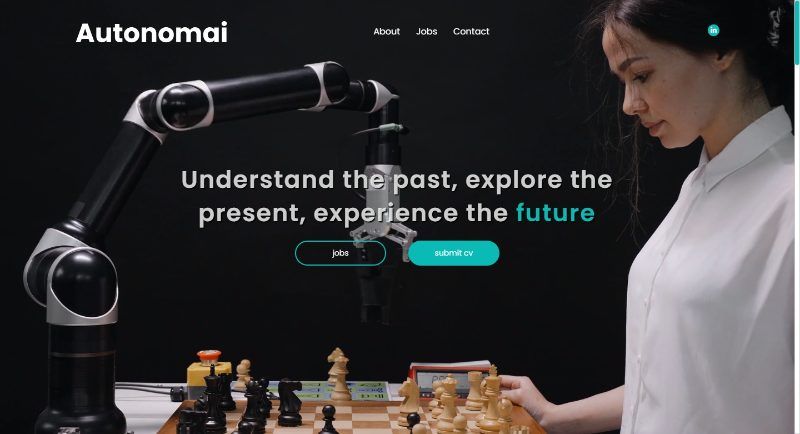
Testimonials/social proof
Testimonials have been helping businesses grow for hundreds of years, with word of mouth among the most powerful ways to spread the word about a product or service.
Now also known as social proof, this type of content has become increasingly useful online, particularly among small businesses and the best startup websites.
They can be comments from social media, starred reviews left on an online form or even good old-fashioned letters posted via snail mail to the startup owner.
No matter the method, publishing them on your startup website helps create trust among potential customers and social media users. Even better, it can also provide a timely call to action for people to check out your home page - and the rest of your website.
Localised content
Never underestimate the power of targeting customers that are on your doorstep, as well as those who may be on the other side of the world.
A good startup website, especially when it comes to ecommerce, recognises the global nature of the marketplace, and features content in more than one language.
Links from other websites
It can take time for a new business, even with one of the best startup websites, to spread the word and build up its reputation among customers and search engines.
A great example of speeding up this process is to include external links from trusted third parties in your content, from your home page to an additional links page.
Far from advertising competitors, these links can enhance your brand’s reputation as an expert in your field for search engines and potentially make your startup visible to a wider audience of website visitors. It’s a total win-win.
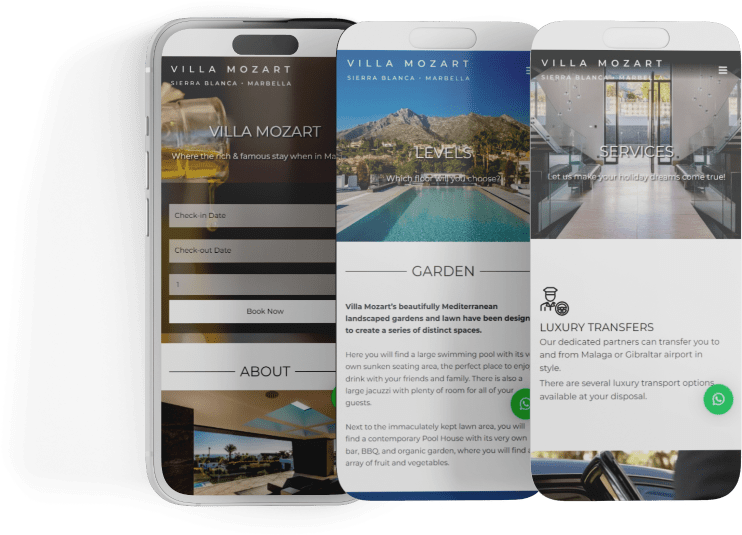
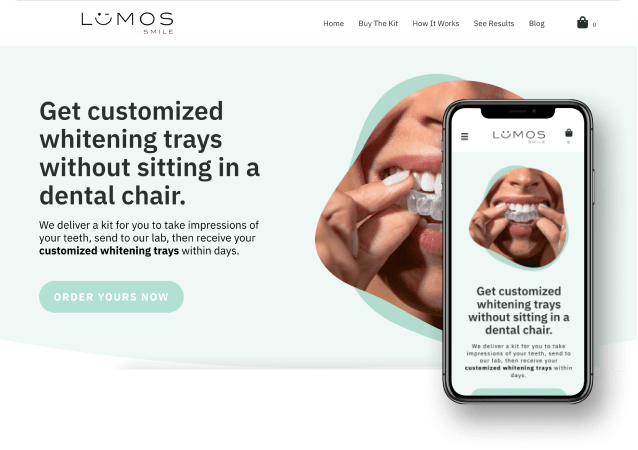
Can you design my startup website?
Yes we can. The thought of setting up your own website can be intimidating, to say the least, and incorporating everything we’ve talked about here could feel like biting off more than the average startup owner can chew.
Relax - we’ve got you covered. Our expert team is based in Bishop’s Stortford, but we create beautiful, responsive, efficient websites for clients across the UK and the world.
Our startup websites are specifically developed to reflect your brand personality and message, with designs that are every bit as unique as your startup.
Bespoke, creative website design
Our web design can help convey a sense of trust and responsibility, we can help demonstrate your firm’s sense of humour or passion for your product, while ensuring every part of your audience is included in the journey - no matter which device they’re using to join the ride.
We can create tailor-made solutions for start-ups to SMEs, drawing on our experience of innovative design to give your business the competitive edge it needs to thrive.
If you’ve headed down the WordPress route to develop your startup website, but are fast running out of time and technical knowledge, we’ve got your back too.
We offer a variety of WordPress website maintenance packages to suit every budget and business, guaranteeing peace of mind for site owners and their consumers by ensuring your WordPress sites are always up-to-date, backed up and secure.
Contact us
TDW Digital Solutions has everything you need to build an efficient, modern startup website for your brand.
Want to find out more? Great! Drop us a line and tell us a little about your business. We’ll be happy to chat about how our team can get your startup website up and running.
Email us at info@tdwds.com, call 01279 354 466, or fill in this contact form and we’ll get back to you straight away.
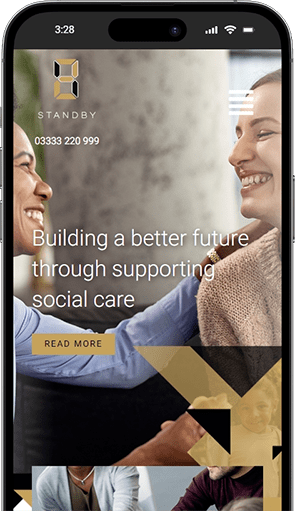
Have a project?
If you’d like to chat about your business and what you need from our website design agency book a call with us today.
